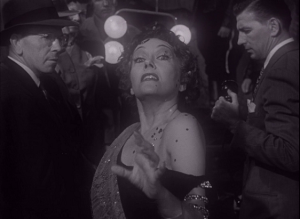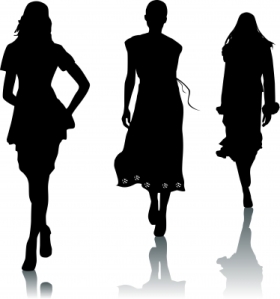 by kanate from FreeDigitalPhotos.net
by kanate from FreeDigitalPhotos.net
1. Facebook
It was once exciting. Everyone was joining, Mom, Dad, Grandma, Grandpa. It was, and still is, a way to keep in touch with everyone. But the layout has gotten heavy with advertisements and endless recommended posts, and what was once simple and clean is now crowded and convoluted. It looks sleek, yes, but feels clunky.
2. Facebook Instant Messenger.
For smartphone and tablet users, this a separate Facebook application, a little chat bubble that pops up anytime someone messages you, which sits on your home screen until you swipe it off. Most Facebook messenger users were perfectly happy with the previous application, using the messenger within Facebook. But, no, no, no, the developers knew better.
Facebook Instant Messenger is likely meant to be something to replace text messages, a new, funky, revolutionary, mandatory application of the future. Except no one is using it to replace text messaging. And even if they were, it still wasn’t a problem to use messenger within Facebook. Now the two biggest apps hogging storage space and data are Facebook and his little brother, Facebook Instant Messenger.
3. Google Maps:
Don’t worry. I normally love Google, but the updates to Google Maps have been odious and completely non-user-friendly. Nothing about the updates have improved the application. They made it worse, added complicated steps, and have taken away important elements of the application.
Navigation, the little blue arrow on your smartphone’s home screen, is a great tool. It has navigated me out of tight spots, helped me find my way home, and has made travel much, much easier. But that’s the thing. It is often used at the last minute, while someone is driving, forgot directions or needs to get someplace unknown quickly. It’s not an application anyone sits at home and admires. So adding steps is not only frustrating, it’s dangerous.
4. Android:
Again, I love Google, but I hate the Android operating system. It was such a cool idea in the beginning. It was cheaper than the iPhone. It made smartphones accessible to people who either couldn’t afford it or weren’t interested in paying for an expensive, hoighty toighty iPhone. It was the beginning of something wonderful.
But now Android phones come pre-loaded with junk apps that are going to forever get in your way and take up your space. Add to that updates, caches, and the Facebook megalodon, and we’ve burdened perfectly good phones with unwelcome trash they don’t need. These are our phones, not yours. Let us put what we want on them, or at least give us the option of uninstalling the applications we don’t like. It’s that simple. Forcing customers to hack into their own phones is tyrannical, and you know it.
 by twobee on FreeDigitalPhotos.net
by twobee on FreeDigitalPhotos.net
5. Touchscreens:
I hate them. I HATE them. I hate them in every form they come in. Touch screen keyboards, touch screen tablets, touch screen laptops.
Sure, it looks futuristic to touch a screen and things happen. The problem is we have nerve endings on our fingers, and they help us identify things through touch. But that thing has to have a shape of some kind. If all you’re feeling is a smooth surface, it’s difficult to tell what you’re touching. Sight alone is limited, which is why typing on a touchscreen keyboard is fraught with error and endless frustration. And auto-correct is its own horror story.
6. Yahoo! Mail:
This was once a bastion to email users who just wanted a simple and tidy means of reading and writing emails. But in 2013, this lean and clean email application was overhauled and replaced with a chunky, clunky replica of Gmail. The interface was full of errors, folders went missing, and emails got lost inside emails that were 100 “conversations” long. Finding emails and replying to them became a guessing game. For days, Yahoo! Mail users were left in the dark.
Eventually, most users discovered a way of rolling back the updates and going to basic Yahoo! Mail, but it’s still prone to errors. Emails aren’t sent. Saved drafts disappear for no apparent reason, and the application is a staggering behemoth of missed connections.
Yahoo! didn’t recognize the market they had cornered, and they didn’t care.
7. YouTube (comments section):
Yes, the comments section of YouTube does seem to attract the dregs of humanity, the worst of the worst kinds of people, who are desperate for attention and think that posting nasty comments under an anonymous name will fulfill them. So I understand why YouTube, (another Google creation which is a wonderful thing taken as a whole), decided to regulate it a bit.
However, linking all comments to Google+ has caused a lot of unforeseen issues. As a user, who’s not afraid of posting under her real name, I’m endlessly signing in. And I’m not really sure what I’m supposed to sign in to. Do I sign into Google Chrome? Gmail? Or YouTube? Or do I sign into Google+?
If you comment on YouTube, if you like swimming with sharks, then you’ll get email notifications when someone replies to you. However, replying back is virtually impossible. Inside the email notification is a link that says “reply,” You think by clicking that link, it’ll take you to your comment. But that doesn’t happen. It takes you to the video, and then you have to go into the comments section and scroll endlessly to find your comment.
I know YouTube was never meant to be a debate forum, but it’s becoming that. So roll with it, Google guys. Stop trying to shut it down.
8. Twitter’s 140 Character Limit:
This is annoying, and it’s making us dumber. Get rid of this idiocy. Inspire real conversation, not sound bytes. It’s making us all hate each other.
 by SOMMAI from FreeDigitalPhotos.net
by SOMMAI from FreeDigitalPhotos.net
9. Outsourced Tech Support Phone Service:
Yes, it’s cheaper to pay someone in India $2 an hour to answer phones. And, yes, there are a million reasons this is happening, wages too high in the U.S., cost of living too high, union demands, government regulations, corporate greed, shareholders, profit expectations, etc, etc. It’s a bevy of issues and problems and a little bit of selfishness from everyone that leads to misery for all. But, dang it, you’re wasting our time.
I’m not opposed to talking to someone with a foreign accent who knows what they’re doing. But don’t just sit people by phones who only know the basics of fixing a problem. (“Did you turn your computer on, Ma’am?”) At least don’t call that “Customer Care” or “Tech Support.” You don’t need cheaply paid labor for that. You just need a recorded message.
For the real problems, hire the people with the knowledge and power to fix problems. I don’t care if they’re Indian, Japanese, American, or Mexican. If they can speak in a way so we understand them and actually know what they’re doing, you’ll save yourself the danger of having the name of your product used in conjunction with swear words.
10. Web Ads
Pop-up ads, video ads, ads on the side of the screen, on the top, link ads, and animated ads. You can open a single webpage and see every single one of these types of ads flashing at you all at once. This is an outdated method of making ad money, and it’s stupid. Frustrate your target customer, shout at them from 10 different directions, and they’re not coming back.












